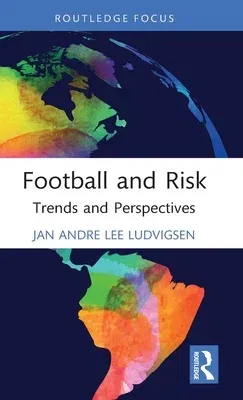This is the first book to look closely at the concept of 'risk' in elite
and professional football from a social scientific perspective. Drawing
on the wider sociological, criminological and management literature on
risk, it shows how football helps us to understand global risk more
generally in present-day society.
The book explores how attitudes to risk have shaped the modern football
business, and identifies those risks that pose a threat to the
sustainability of football in the future. It draws upon the work of
theorists including Ulrich Beck, Anthony Giddens and Michel Foucault, as
well as digital media sources and policy documents, and covers a range
of topics, cases and themes including political, environmental and
terrorism risks, technologies, the governance of fans and risk
resistance.
In the context of the social, globalized and commercialized realm of
football, as well as a global pandemic that has had a profound influence
on attitudes to risk, the book argues that modern societies'
preoccupation with risk has transformed the ways in which modern
football is played on the pitch, organized off the pitch, covered in the
media and attended by fans.
Including an extended case study of the 2026 World Cup, to be held in
the USA, Mexico and Canada, this is a thought-provoking read for any
student, researcher or policy-maker with an interest in football, sport,
events, sociology, criminology or risk management.

